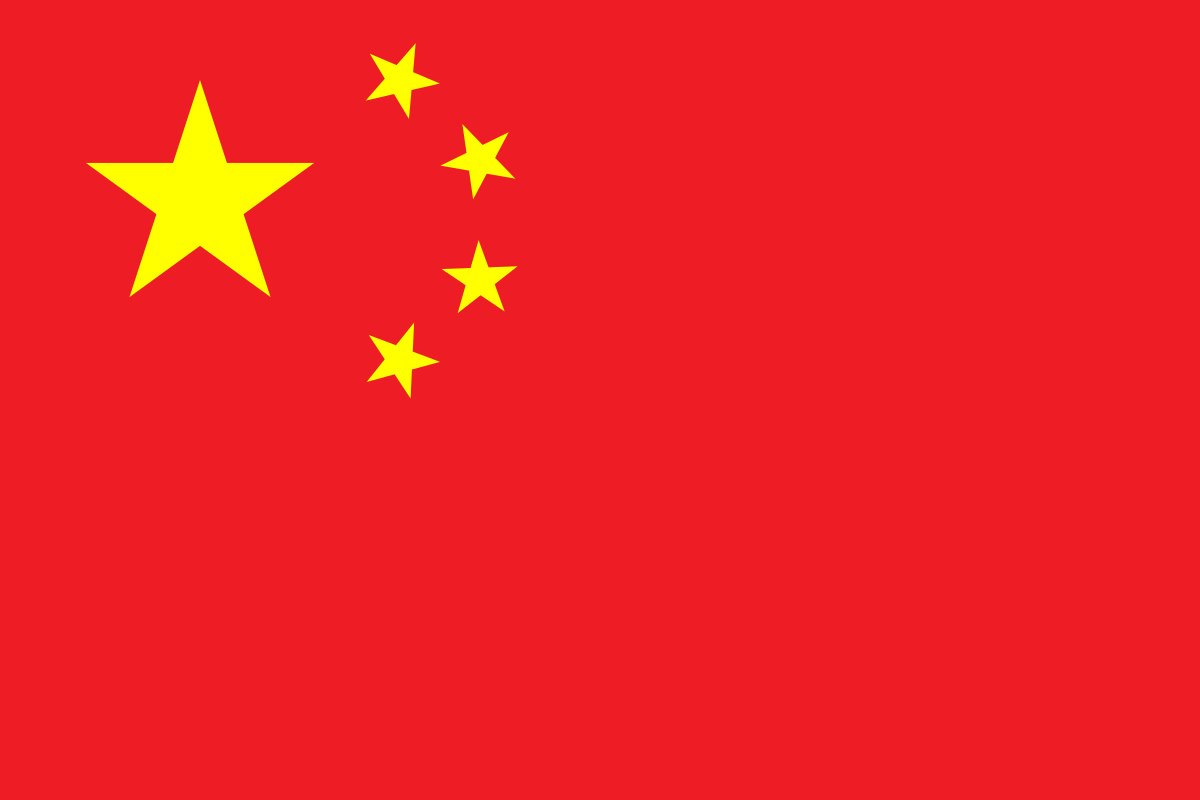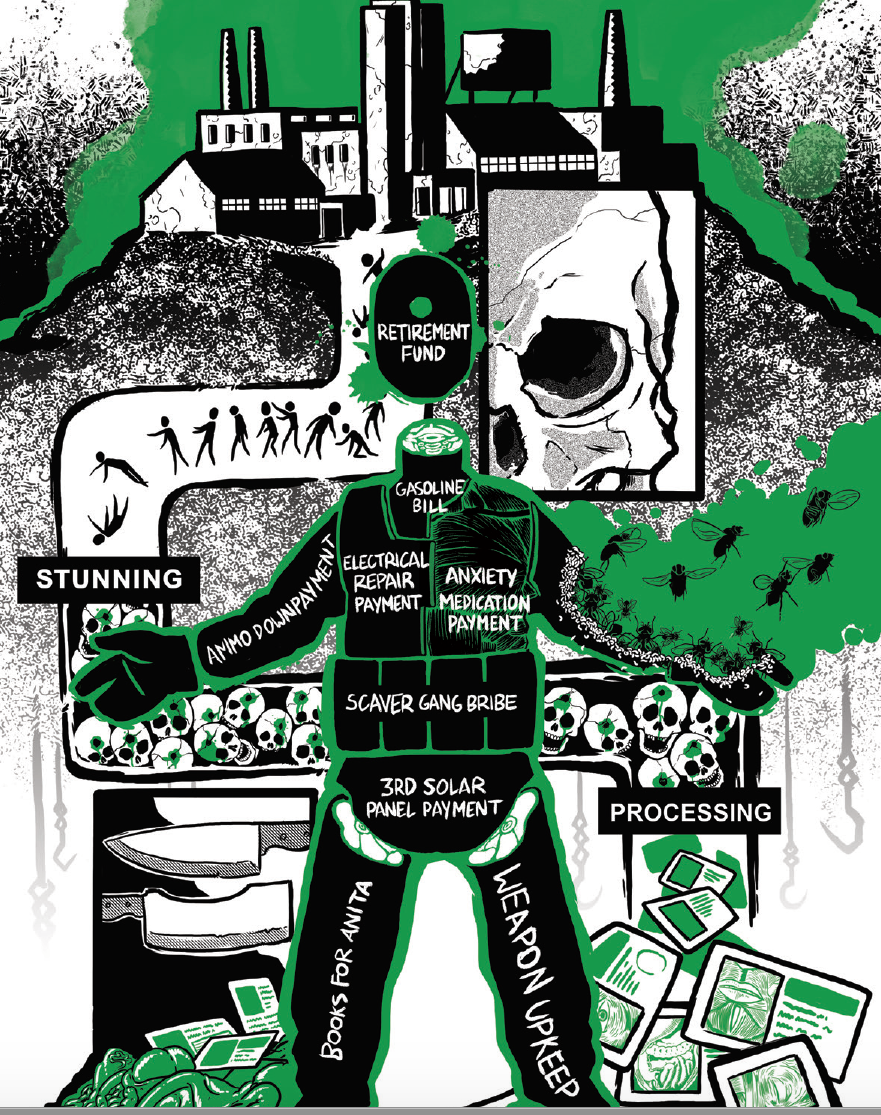Colonial politics and imperialism are not healthy, curable deviations of capitalism…they are the inevitable consequence of the very foundations of capitalism. Competition among individual entrepreneurs either to become ruined, or to ruin others; competition between individual countries places before each of them the alternative of their remaining behind, running the risk of [falling behind], or ruining and conquering other countries, thus elbowing their way to a place among the great powers – V.I. Lenin, “Imperialism and Socialism in Italy”
May 12, 2022
By Stephen Gowans
From The Wall Street Journal we learn that China’s President Xi Jinping has hammered home the need for tighter party control over the economy with a wider role for state enterprises. Under Xi, China’s Communist Party has tried to transition from ‘economics in command’ to ‘politics in command.’
But now “China’s economy is struggling, and its financial markets are suffering. Some economists expect growth to contract this quarter. Millions of graduates are struggling to find jobs.”
Premier Li Keqiang is “helping press Xi to dial back some measures that have contributed to China’s economic slowdown.”
“As a young man, Li pursued a doctorate in economics under a prominent Chinese economist known for advocating Deng Xiaoping’s market-reform agenda and privatizing state firms.”
“Under Mr. Li’s influence, Beijing recently eased a regulatory crackdown on private technology firms, loosened lending to property developers and home buyers, and acted to help some manufacturers”, including Tesla, controlled by Elon Musk, the world’s richest person, “resume production when much of China has been forced into lockdowns by Mr. Xi’s zero-Covid approach.”
As the Marxist sociologist Albert Szymanski once pointed out, communists, like Xi, who choose to operate within the capitalist system soon discover that state policy is structured by capitalism, not by their policy preferences. Decision-makers who defy capitalism’s imperatives find their actions precipitate crises. Humbled, they quickly back peddle.
In a Chinese idiom, economics, i.e., capitalism, is in charge.
I explore this issue in my new book The Killer’s Henchman: Capitalism and the Covid-19 Disaster.
“The political orientations of the people who hold high-level positions in the capitalist state are largely irrelevant. The logic of capitalism structures the policy boundaries within which policy- and decision-makers operate, forcing conservatives, liberals, social democrats, and even communists who elect to work within the capitalist system, to operate within the same narrow pro-capitalist policy space. The prosperity and stability of a capitalist society depends on the private owners of capital accumulating sufficient profits. If they cannot generate enough profit, they cease to invest, and economic activity grinds to a halt. To maintain stability, governments must pursue policies to support the profit-making activities of their business communities. If they choose not to, their only option is to mobilize popular support to bring the economy under public ownership and control, so that investment decisions can be transferred from private hands to the public sphere, from profit-making as its goal to satisfying public needs as its end. There is no middle ground, where working-class interests can be robustly and continually expanded within a capitalist framework at the expense of the capitalist class.”
Capitalism structures state policy, not only in the realm of domestic matters, but in foreign relations, as well. Communists who elect to operate within the capitalist system are constrained to compete with other capitalist states for markets, raw materials, spheres of investment, and strategic territory, vital to their investors and profit-accumulating enterprises. If they are to play the capitalist game, states can no more absent themselves from rivalry with other states— with potential to escalate to war—than a private firm can absent itself from rivalry with its competition.
As two Bolsheviks wrote in their ABC of Communism , each “producer wants to entice away the others’ customers, to corner the market. This struggle assumes various forms: it begins with the competition between two factory owners; it ends in the world, wherein capitalist States wrestle with one another for the world market.” And in the struggle of capitalist states for the world market—in arms, oil and natural gas, rare earths, vaccines, robotics, supercomputers, AI, autonomous vehicles, 5G, and other commodities—lies the potential for war.
There is no doubt that Beijing has chosen to play the capitalist game. It is the centerpiece of its development project. There is, therefore, no option for China to excuse itself from imperialism. If it is to develop along capitalist lines, it must behave as a capitalist state, including by vying with other states for capitalist advantage around the world and indulging billionaires like Elon Musk and Apple’s Tim Cook, capitalists who have grown immensely wealthy by exploiting cheap Chinese labor.
That China’s capitalist development project is under the command of communists, neither negates the reality that the project is one of integration into a world capitalist system based on exploitation, or that, as Xi is finding out, politics in command can be checked by capitalism in command.
As political science professor Minxin Pei told The Wall Street Journal, Xi may be a “leftist deep down, but he has to make tactical compromises over the economy.” That is, the world capitalist economy.
In sum, despite the Communist Party being nominally in charge, and the president being a leftist “deep-down,” China is integrated into the world capitalist economy as a major, if not the major player, by the choice of China’s Communist Party rulers. State policies are not structured by communists seeking to end the exploitation of one human by another, but by the imperatives of the capitalist system Chinese communists have consciously embraced.
The idea that China is socialist is as far-fetched as the idea the moon is made of cheese.
Liberals: Akshually its just capitalism with various reforms, that doesn't automatically make it socialist you dogmatic idealistic tankie
Me, a tankie: ok let's implement those reforms here
Liberals: no, that would be authoritarian and communism
So you don't care about actually building socialism? Why be a socialist then if capitalism is so much better
i honestly cant tell if this guy is a bloomberg columnist jerking off to china not being socialist, or a trot
truly impressive
Actually I think I've made a mistake, I thought it was authored by Trotski, but I've confused it with "ABC of Materialist Dialectics"
Gowans is pretty popular on the Anti-Imperialist left, he would be called a Tankie by the lib left. His criticisms of China's economy should not be dismissed so easily.
TBH, his criticism that in market economy it is either subservience to capitalists, a crisis or a move towards full planning is actually pretty apt. Hope, China will move towards planning and more workers' control.
To maintain stability, governments must pursue policies to support the profit-making activities of their business communities. If they choose not to, their only option is to mobilize popular support to bring the economy under public ownership and control, so that investment decisions can be transferred from private hands to the public sphere, from profit-making as its goal to satisfying public needs as its end.
I am confused... Is this writer just completely unaware of the roadmap China has laid out? They know this, they are planning on doing exactly what this writer is claiming they need to do.
https://lemmygrad.ml/post/230846
STAGES OF SOCIALISM
The best way to summarize the stages according to the current theoredical line of the CPC and the interpretation of Professor Cheng Enfu:
0th Stage or Socialist Construction Period
- Founding of the PRC (1949) to the end of the Great Proletarian Cultural Revolution and the Boluan Fanzheng period (1977)
- Bloc of Four Classes, New Democracy
- People's Democratic Dictatorship with Proletarian Leadership
- Basic institutions of the PRC built
- Basic Industrialization, urbanization, and infrastructure development
- Eradication of severe deprivation, doubling of life expetancy and other achievements
- Officially, this period is part of the primary stage but it's generally talked about as being a separate era.
Primary Stage of Socialism
- Beginning of Reform and Opening Up (1978) until the 100th year of the founding of the PRC (2049)
- Split into two sub-stages
- 1978-2020 (Moderately Prosperous Society, eradication of absolute poverty)
- 2021-2049 (Modern Prosperity, eradication of relative poverty and underdevelopment)
- Split into two sub-stages
- Socialist Market Economy
- Public Ownership in various forms primary; private ownership secondary.
- Market-based distribution according to labor primary; according to capital >secondary.
- State-dominated Market Economy
Intermediate Stage of Socialism
- 100th year anniversary of the PRC until the 'end of the century'.
- Split into two-sub-stages
- 2050-2078 (Highly Developed, centenary of Reform and Opening Up)
- 2079-2100* (Great Rejuvenation of the Chinese Nation by the 'end of the century')
- Socialist Market Economy 2.0 (no official name yet)
- Multiple forms of social ownership (state, coop, joint-stock); no private ownership
- Multiple types of commodity distribution according to labor (similar to Stalin's elaboration)
- State-dominated planned economy with secondary market adjustments
- Although theorists have suggested leaping over the 'intermediate' stage and instead having a longer 'advanced stage' (theoredical developments are only set in stone once they have been voted on and approved in congresses and/or added to the party constitution)
Advanced/Final Stage of Socialism before Communism
- 2100*-???
- No official speculation about the exact year but before the end of this century
- Fully Socialist Economy
- Single Public Ownership by entire society
- Product-based distribution according to labor (overcoming/abolition of the commodity form)
- Completely Planned Economy
Communism
- Single public ownership by entire society
- Product-based distribution accoriding to need primary (distributon according to >labor for new products in shorter supply)
- Completely Planned Economy
Their plan is laid out and it involves doing exactly what this writer says China must do. It's a bizarre scenario of someone shouting "This is how you must achieve communism china" and if anyone there could actually hear them screaming this they would just shout back "We knoooooow, why aren't you reading anything we put out?"
Agreed. They've got a plan. I have no idea if they can carry it off, but they've got a plan. And Capitalism is not doing so hot. And the world is on fire. There's nothing but chaos in the near future, but chaos creates the possibility of change.
This is a long standing /r/genzhou post that I've referred to many many times. I've told them they should merge c/genzhouarchive and c/genzhou instead of having them separate so users are in the correct space for c/genzhou but they don't seem to be doing that. They really ought to as it'll mean old genzhou posts can act as recruitment to the site in a better way, there's no good reason to separate the two it just means losing several of the benefits of having it.
Genzhou was a treasure and I hope they can bring it back to somewhere close to what it was there. Legitimately the best educational space that existed and reddit just smashed it for no good reason.
Socialist Market Economy Public Ownership in various forms primary; private ownership secondary. Market-based distribution according to labor primary; according to capital >secondary. State-dominated Market Economy
This is simply not true. Private ownership has rapidly taken over public ownership in the last 2 decades. You can read any official State media that celebrates how the private economy is the reason for curing all the social ills in society.
It’s not just that, there are some concerning stories of investors being boomers hoping to retire on stock market portfolios, this by itself is probably greatest corrosive force in politics:deeper-sadness:
Public ownership being “primary” is in reference to the commanding heights of the economy and major strategic industries still being predominantly under public ownership. Most of the top 500 companies in China are also still publicly owned. Less strategic industries tend to be relegated to the private sector. It’s similar to the economic structure of the soviet NEP that incorporated state capitalism with a large private sector while seeking foreign investment for its development, albeit China’s version of the NEP (“socialist market economy”) is certainly more long-term, as they don’t face the same external pressures for a “Great Break”. The party also exercises public control over the private sector and can influence management decisions through communist party cells that have been installed in about half of the country's private enterprises so far. Chinese media do praise the state sector and have emphasized the importance of state-owned enterprises in achieving poverty alleviation and boosting the economy. China will also brag about its private sector to help with attracting foreign investment for the country.
In late 2020, a plan to make state-owned enterprises “stronger, better and bigger” was approved by the Central Commission for Comprehensive Reforms and over 40 high-tech companies have also been recently nationalized. Xi has recently declared that the Communist Party’s state-owned enterprises “form the economic and political foundation of China’s socialist system and are a key pillar for the Party’s rule” also adding that the state sector’s role “cannot be negated nor weakened”. He has also praised state firms and announced that they have proved their worth in “both pandemic control and industrial production”. The CPC under Xi has also been substantially increasing the amount of supply and marketing cooperatives to cover over 95% of villages and townships as of 2018 (was only 56% in 2012) as well as broadening their scope of services to other industries.
This doesn't mean anything. Indonesia, Argentina and Malaysia have similar commanding heights over the SOE which continued to be weakened. This is not similar to the NEP at all. You also don't point out the SOR reforms that occurred under Deng where SOE are given autonomy and its efficiency is measured by how profitable they are. The state can exercise control over the SOE is because profits are high. When the next crisis comes, I don't see a way out of for China, I've not been assured that China is not following the world market and can be immune to capitalist crisis, a rude awakening is trembling below.
Indonesia, Argentina, and Malaysia lacked the degree of public control over the commanding heights of the economy that China or even the NEP-era Soviet Union had with their effective state monopolies over a number of major industries. The US-China Economic and Security Review Commission found that the contribution of state-owned enterprises, urban collectives, publicly-owned township and village enterprises, and other CPC controlled entities (both direct and indirect) accounted for almost 50% of GDP (state-owned enterprises/directly controlled enterprises accounted for about 40%). No capitalist country has the level of public control of banking that China has, which is dominated by state-owned banks with deposit and lending policies being directed by the government. A study on public sector investment and growth showed that China had a stock of public sector assets worth about 150% of annual GDP. Every major capitalist economy other than Japan had less than 50% of GDP in public assets. Also, there are nearly three times as much stock of public productive assets to private capitalist sector assets in China. In the US and the UK, public assets are less than 50% of private assets. In India and Japan, the ratio of public to private assets is no more than 75%.
State-owned enterprises in the Soviet Union under the NEP also operated on a profit basis and were given more autonomy in management compared to the old system of War Communism (the NEP was a significant influence in guiding the Chinese market reforms for Deng). Economic reforms in the Soviet Union and East Germany during the 1960s also introduced and emphasized profitability as a key indicator of enterprise success and efficiency as well as providing more autonomy for enterprise managers.
A recognized major role and benefit of the state-owned enterprises in China is that they act as a buffer against internal shocks and external threats while stabilizing economic growth during downturns through massive investment and promoting technological progress. With a robust state-owned sector, China was able to fare significantly better than much of the major capitalist economies during the Great Recession and the pandemic. The Chinese economy was also able to bounce back well from the stock market turbulence from 2015 much to the chagrin of the many western analysts who were predicting a Chinese economic catastrophe then.
They may be able to achieve socialism, but communism is impossible in China without the rest of the world going communist too.
Yes, this is a sound plan they have, but at some point it needs to be less about the "Great Rejuvenation of the Chinese Nation" and more about supporting international proletarianism. I understand why they don't advertise that though.
100 years ago this guy would have said the exact same thing about lenin and the bolsheviks
Well the difference between the ussr and China is the ussr actually ended the NEP and advanced towards collectivizing their economy and liquidating the nouveau petty-capitalist class that arose in that period.
China has not done such measures to this day, but of course it is my hope that their long-term plan for building towards a socialist economy will be successful.
In a Chinese idiom, economics, i.e., capitalism, is in charge.
I explore this issue in my new book The Killer’s Henchman: Capitalism and the Covid-19 Disaster.
The fact that China is continuing the Zero-covid policy regardless of what the line does, should show you that it's not capital that is 'in charge'
Thats the worst idiom I've ever heard, it's just a literal statement.
Hi, I'm Stephen J Whiteguy here to explain why China isn't socialist.
Communists who elect to operate within the capitalist system are constrained to compete with other capitalist states for markets, raw materials, spheres of investment, and strategic territory, vital to their investors and profit-accumulating enterprises.
Damn I wonder if anyone ever thought of this before?
This man is obviously some sort of genius operating on a much higher level than us dirty plebs.
So you agree with this quote and still think China is socialist? How do you reconcile that?
Because, in a market, success compounds. You're only constrained by the selective pressure of competition for as long as your opponents can keep up - after that, you've goch yerself a bona-feeday monopoly. The other capitalists states now need you. In a good-faith interpretation of Deng's strategy, that's the point where you can start clamping down on the market and organizing production for the good of people. Will they actually be able to do it? Stay tuned, 'cus - either way - it's sure to be interesting.
Clearly, Mao should have known that the drought was going to happen, that Lysenko was full of shit, and that people were going to lie to the central authority about crop yields. Since he didn't he's guilty of fifty million murders.
China
Colonial politics and imperialism
Opinion discarded
No, please, continue to explain how by shuttering their industries to investment and not allowing America to kill itself by only indulging on treats and not developing domestic infrastructure, they are fucking up.
We are to the point where yeah, there is probably going to be an economic slowdown, that being said, it is going to hit the U.S. poor way harder than the Chinese poor, because there is no social safety net, and no centrally responsive mechanism of governance.
Ohh, this is the same guy who wrote this absolute turd lmao
https://gowans.blog/2022/04/13/the-mental-illness-of-anachronist-radical-socialism/
Lmao, and of course it turns out that OP posted that shit here like a month ago
:parenti:
Is Xi Jinping, in his heat of hearts, truly communist? I don't fucking know. Is "Socialism with Chinese Characteristics" a madman's dream, a game that ends with you turning into your opponent? I really couldn't say. But I do look forward to finding out for sure in the coming decades.

















